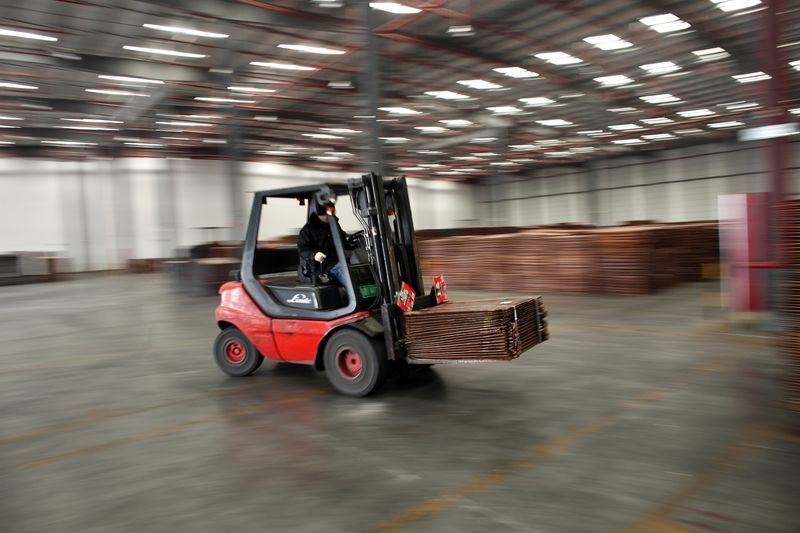By Pratima Desai and Julian Luk
LONDON (Reuters) - China's copper scrap imports have soared due to shortages of concentrate that is processed into refined metal used in the power and construction industries, but record high prices mean U.S. shipments are likely to pause.
Smelters in top copper consumer China have faced concentrate shortages since last year when First Quantum lost the right to operate its Cobre mine in Panama, which accounted for 1% of global mined supply in 2022.
China's copper waste and scrap imports overall climbed 25% to 783,004 tonnes in the first four months of this year compared to the same period in 2023, according to Trade Data Monitor (TDM).
TDM data also shows China's scrap imports from the United States jumped 37% to 153,059 tonnes in January to April this year from the same period last year.
Copper scrap from the U.S. is priced at a discount to the CME price, which hit a record $5.1985 a lb or $11,460 a tonne on May 20 due to parties which had sold futures being forced to buy them back or roll over positions.
"Chinese buyers are deferring U.S. copper scrap shipments," a source at a Chinese trading firm said, adding that China's top scrap supplier was the United States.
The source said some Chinese buyers were looking to price U.S. scrap against copper on the London Metal Exchange (LME), trading at a discount to CME prices.
Deteriorating production at other mines, many in Latin America, has exacerbated concentrate shortages and Chinese smelters have imported more copper scrap to feed their furnaces and protect their margins.
China is home to half of the world's copper smelters and the largest buyer of raw materials including concentrates and scrap.
Scrap typically accounts for about 9 million tonnes or roughly 30% of global copper supplies annually.
"Due to concentrate tightness copper smelters are processing more scrap and blister," said Macquarie analyst Alice Fox.

"Given the cost of physical collection and processing - during periods of significant price movement, scrap tonnages on a contained copper basis can move by up to one million tonnes per annum, effectively rebalancing the market during periods of high or low prices."
Macquarie expects the gap between copper supply and demand to widen to 1.6 million tonnes in 2030 from a deficit around 86,000 tonnes this year.